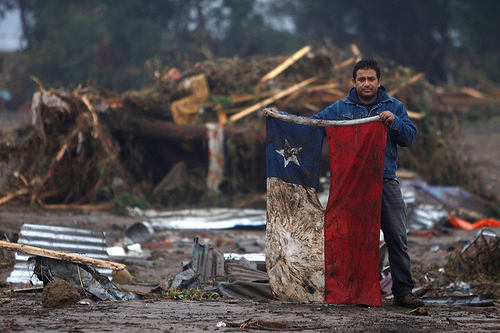May 04, 2012
By Chris Clark
Raquel Rolnik’s comments on use of subsidies in housing reconstruction spark debate.
During a weeklong visit to Chile prompted by several local organizations, Raquel Rolnik, the special rapporteur on housing with the United Nations, criticized the role of subsidies in Chile’s reconstruction process after the 2010 earthquake.
“The reconstruction following the 2010 earthquake has been an efficient and notable process, but it ought to rely upon a mechanism apart from subsidies,” Rolnik told La Tercera.
Following the earthquake, the Chilean government established three types of subsidies for residents whose homes were damaged or destroyed. Depending on the severity of damages sustained, victims of the earthquake could receive a subsidy to repair a home, purchase a new home or completely rebuild.
The National Movement for Just Reconstruction (NMJR), one of the organizations which encouraged Rolnik’s visit, holds that the Chilean government’s approach to reconstruction may be at odds with international standards for human rights and housing as outlined by the international declaration of human rights, according to El Ciudadano.
Pablo Ivelic, the director of the government’s housing reconstruction agency, said that the reconstruction plan introduced by the Chilean government meets international standards of human rights and was developed with help from representatives of the World Bank.
“The approach taken by the Chilean government to housing reconstruction following the earthquake has indeed been comprehensive in nature,” Ivelic told The Santiago Times. “There have been three distinct target areas to our approach: the household, the neighborhood and the city. We have structured our projects to best meet the needs of Chileans at each level.”
Among other concerns, critics assert that the Chilean government has not provided the necessary legal framework to ensure a clear definition of property rights within many new housing developments that have come to fruition after the earthquake.
Additionally, the rebuilding process for many Chileans has been relatively slow, forcing some to live in overcrowded conditions. Consequently, rates of delinquency have increased in areas that were especially affected by the earthquake.
Other critics say that too much emphasis has been placed on the provision of housing subsidies and relatively little concern has been granted to social issues that came about as a result of the displacement of thousands of Chileans.
Ivelic noted that it is important to consider the role of subsidies in two distinct ways: first, as an instrument of reconstruction, and second, as a system of social policy.
“As an instrument of reconstruction, subsidies can be helpful,” Ivelic said. “There are a number of studies that support the use of subsidies as an instrument to help reconstruction efforts.”
As is the case with many social issues in Chile, there seems to be a sharp divide between those who hold a relatively narrow view of adequate housing, and those who believe otherwise. Rolnik, whose work with the UN deals with the role that adequate housing fulfills within the broader spectrum of human rights, explained that reconstruction is “an extensive process that affects people’s property and lives as well as the socioeconomic climate and urban development of cities.”
“Such a definition of reconstruction requires processes that involve public participation and that are well-rounded in nature,” Rolnik said. “When housing policies define ‘adequate housing’ as a dwelling with a roof and four walls, it is possible to violate human rights because adequate housing implies much more than this.”
At a seminar called “The Right to Housing in Chile” on Wednesday evening, Paulina Saball, of the Foundation to Beat Poverty, echoed Rolnik’s sentiments.
“Whether housing is seen as a human right in Chile is a complex question,” Saball said. ”It is first necessary to conceptualize what ‘adequate housing’ means in Chile.”
Source: The Santiago Times


Leave a Reply